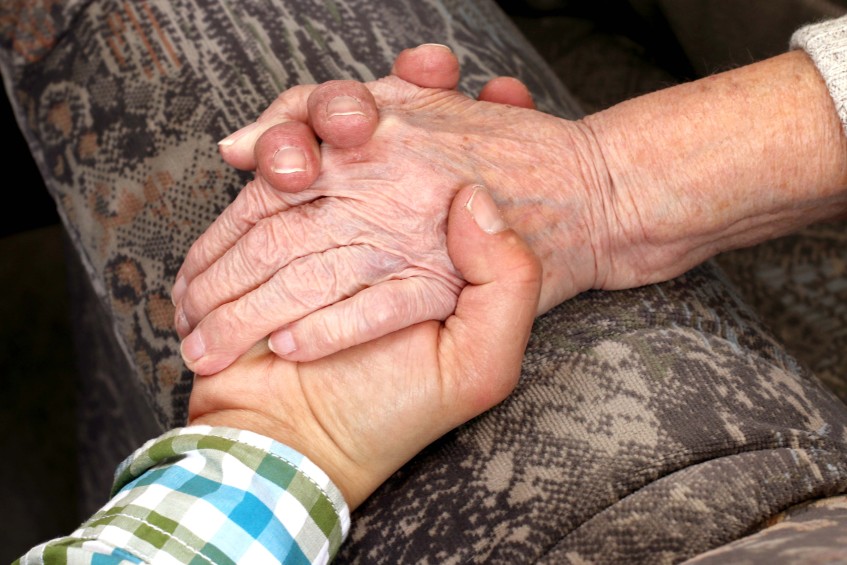Standing At the Edge of the Rubicon

Karl Brown writes that at the core of the proposed VAD legislation is the assertion that, at certain times and under certain circumstances, it should be legally (and morally) permissible for an innocent person to be killed by another. Photo: Adobe.
By Karl Brown
It was nearly 2,000 years ago that Julius Caesar defiantly marched his army to the edge of the Rubicon river; made his famous declaration ‘alea yacta est’ (the die has been cast); and waded across the shallows and into an historic conflict.
Here in Western Australia, we sit on the precipice of an unprecedented and potentially irreversible decision in our state’s history.
We have marched up to the bank of our own Rubicon – the crossing of which would leave Western Australia a more dangerous place to call home for tens of thousands of its most vulnerable citizens.
At the core of this piece of proposed legislation is the assertion that - at certain times and under certain circumstances - it should be legally (and morally) permissible for an innocent person to be killed by another.
Such a claim is fundamentally incompatible with the value of human life at all stages, and is certainly not in the best interests of society as a whole.
In the interest of ‘freedom and choice’, this Bill proposes to remove one of the cornerstones of civilisation, while simultaneously claiming that it will have no unintended consequences.
It doesn’t take a structural engineer to tell you that such a claim is (at best) misguided or ignorant…and undoubtedly dangerous.
The process of removing such a foundation stone may well be careful; it may be popular with constituents, and it may be motivated by the best of intentions – but it remains fundamentally dangerous and socially irresponsible.
Once such a critical societal stone is removed, a foundational protection in our society disappears with it.
In our own Judeo-Christian tradition, we are bound by (and freed by) living out the Ten Commandments.
These commandments are certainly applicable for individuals, but they were originally delivered to a people who were in the process of being forged as a nation. These commandments are (directly or indirectly) fundamental to many societies across the globe, and yet this bill seeks to make ‘thou shalt not kill’, itself a categorical directive, into a situational or circumstantial one. Such a departure from ancient social wisdom is much larger than a simple transgression against a particular religious code - it undermines what makes a good society, and defies the wisdom passed on through the centuries of how groups of people function and thrive together.
Turning our attention towards our specific bill here in WA - it has been heralded publicly, as well as during the recent Legislative Assembly debate period, that the bill contains ‘102 safeguards’, and therefore represents the highest possible level of safety for those members of our society who would be placed at greater risk by its passing. I feel it important to state very strongly at this juncture that the WA bill is objectively less safe than the Victorian VAD Bill (passed in 2017), which in itself is deeply flawed – and that a significant number of the 102 safeguards are nothing more than procedural or administrative in nature.
But this is the inherent challenge of legislating something of this nature. You cannot just tinker around the edges of such a fundamental social shift.

Karl Brown has been actively involved in opposing VAD legislation as part of the Care for Life team. Photo: Supplied.
It doesn’t matter what type of conciliatory red tape is wrapped around such a regime to ease its passage – it fundamentally cannot be made safe.
One only needs to look across the seas at each and every legislature who has cast their own die and waded into these waters to see that euthanasia and assisted suicide laws continue to leave a legacy of wrongful deaths and broken families, despite each government’s best efforts to prevent this.
This is what a society signs up for when it agrees to support euthanasia and assisted suicide legislation.
There is not a single jurisdiction that has got it right so far, and one feels that it would be the height of hubris to claim that we might be the first.
The consequences of getting it wrong are permanent and irreparable, and the research confirms that wrongful deaths go hand in hand with VAD.
Upon reflection, I find it particularly perplexing that those who support assisted suicide and euthanasia have framed this bill as ‘compassionate’.
I do not say this to doubt their motives, or to suggest that they are not acting in good faith, but rather to question their understanding of the word itself. The very definition of ‘compassion’ means to suffer with - which is the exact opposite of what happens under a VAD regime.
To put it simply - you don’t suffer with someone by prematurely ending his or her life. If we as Western Australians strive to be a truly compassionate society, we will progress toward this by building on the life-affirming foundation stones that we have been entrusted with – not by removing them.
Karl Brown is a leadership, management, and strategy consultant based in Perth, Western Australia. He is a course coordinator in the School of Business at The University of Notre Dame in Fremantle, and has been actively involved in opposing VAD legislation as part of the Care for Life team.
